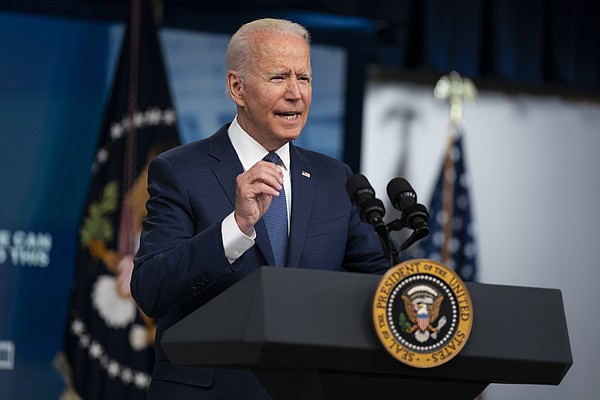Biden to sign order on workers’ desirability
President Joe Biden plans to sign an executive order that will reduce employers’ ability to prevent workers from going to rival companies and remove some of the state’s professional license requirements that make it more difficult to get a job .
The order is designed to improve workers’ opportunities in the economy, increase their chances of employment and generate more competition among American employers, White House press secretary Jen Psaki said on Wednesday.
It was not known when the order would be signed.
“It affects construction workers, hotel workers, many blue collar jobs, not just top management,” Psaki told reporters aboard Air Force One, adding that Biden “believes that if someone offers you a better job, you should be able to take it. “
The ordinance will be a key test of whether empowering workers will lead to wage increases and facilitate their migration to areas of the country where their skills are most in demand. It also allows Biden to show in the 2022 congressional election how Democratic policies are worker-centric, a key argument as Republicans increasingly tried to portray their party as supporting the working class.
The upcoming order will order the Federal Trade Commission to curtail and potentially ban so-called non-compete agreements, which have kept workers in industries such as fast food and tech from turning to others. employers for a higher salary.
The ordinance also seeks to ban “unnecessary” professional licenses that can adversely affect the income of military spouses, skilled immigrants and former prisoners. The requirements can limit the ability of teachers or hairdressers to cross state lines, while forcing some to spend money on for-profit schools to assert the skills they already have. About 30% of jobs in the United States require a license, according to a 2018 FTC report.
This effort builds on the work started in 2015 by the Obama administration to get states to reduce the burdens associated with their licensing requirements.
The ordinance will also toughen FTC and Justice Department guidelines to prevent employers from sharing data on wages and benefits so they can suppress workers’ earnings. The New York Times first reported on Wednesday on all elements of the worker-centric order.
The order will depend on the ability of regulators to enforce the rules sought by the White House and draft them in such a way as to survive legal challenges. And many of the policies that labor economists see as problematic, including licensing requirements, are set at the state level, leaving a limited federal role.
Yet the planned order is the most concerted effort in recent times to use the power of the federal government to tip the scales in the labor side. It is based on years of research which has made its way from the intellectual fringes to the general public.
“It is increasingly recognized that the lack of competition has held back wages and that there is a lot of scope for the government to improve this,” said Jason Furman, who was chairman of the Council of Economic Advisers at the White House during the second term of the Obama administration. “I don’t think tackling competition issues will miraculously transform inequalities in this country, but it will help. The government should be on your side when it comes to wages.”
There have been bipartisan discussions on Capitol Hill about limiting non-compete agreements, especially after some angry stories emerged, such as sandwich shops and barber shops contractually banning workers from visiting businesses. competitors. These disputes tend to pit incumbent companies – who don’t want their employees to be able to quit with potentially valuable information – against startups who want more ability to hire people at will.
Professional licensing is also an area with the potential for bipartite agreement, uniting those who want greater opportunities in the labor market with those who oppose excessive regulation. Many more jobs require professional licenses than in decades past, and generally a license in one state is not easily transferable to another, potentially limiting the ability of workers to move to places where they are. can earn more. This is particularly problematic for military families, who typically have no choice but to move regularly.
Still, the Biden approach has potential negative effects. By creating a barrier to entry for workers entering a field, licenses can also keep wages higher for existing workers in those jobs, meaning some people stand to lose if requirements are revoked. Additionally, research by Peter Q. Blair of Harvard and Bobby Chung of the University of Illinois suggests that women and racial minority groups experience less pay gaps in fields that involve professional licensing.
Information for this article was provided by Josh Boak of The Associated Press and Neil Irwin of the New York Times.
President Joe Biden speaks about the COVID-19 vaccination program during an event in the South Court auditorium on the White House campus, Tuesday, July 6, 2021, in Washington. (AP Photo / Evan Vucci)

President Joe Biden speaks about the COVID-19 vaccination program during an event in the South Court auditorium on the White House campus, Tuesday, July 6, 2021, in Washington. (AP Photo / Evan Vucci)

President Joe Biden arrives to speak on the COVID-19 vaccination program at an event in the South Court auditorium on the White House campus, Tuesday, July 6, 2021, in Washington. (AP Photo / Evan Vucci)

